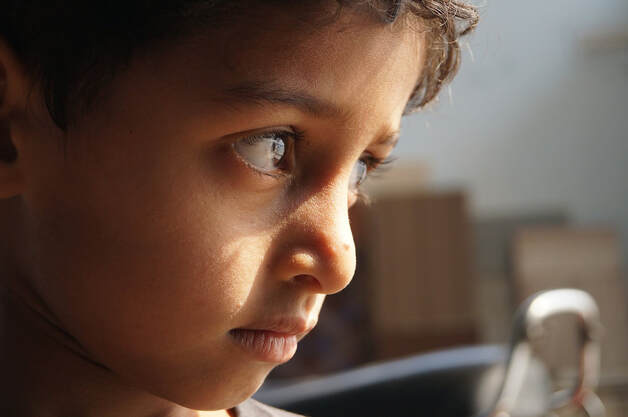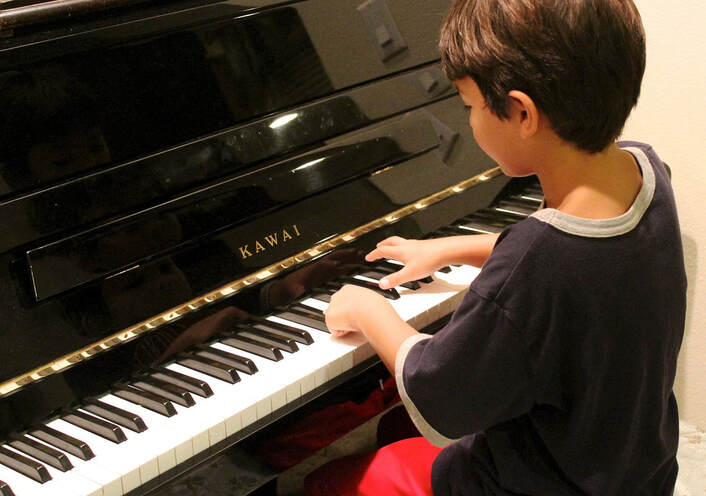|
Can the study of music, or a program of music therapy, help children struggling with emotional or behavioral disorders? A growing number of experts say it can. Emotional disorders in children and adolescents can have a number of negative or potentially dangerous consequences. These can include a chronic lack of academic success, aggression against peers, isolation from others, substance abuse, running away from home, and even violence against oneself or others. Children with emotional and behavioral disorders may have extremely limited functioning in one or more areas. This can prevent them from engaging in a healthy way with their families, schools, or communities. A comprehensive plan of general psychological or psychiatric therapy is likely to be the lynchpin of any successful program to treat these conditions. However, such a plan can be enhanced considerably by the incorporation of music. Music can help in a variety of ways.Music therapy can improve a child’s self-image, and can help him or her develop much-needed self-esteem and a clearer and stronger personal identity. For any child or teen who has experienced abuse, this type of therapy has the potential to promote positive new attitudes about themselves and their worth. Recent research has demonstrated the capacity of music therapy to help in several specific ways in working with children with emotional disorders. These involve the regulation of the child’s own emotions, developing communication skills, and addressing challenges with social functioning. Music therapy has proven extremely useful in decreasing children’s levels of anxiety and developing their ability to be emotionally responsive. Young people who have difficulty controlling their impulsivity have also been helped by music therapy. In fact, a carefully structured and appropriately repetitive series of experiences that engage multiple senses, presented within a context of acceptance and support, can be of immense value in a variety of clinical settings. Some research has even suggested that the use of music can even produce a sense of relaxation that leads to improved performance on a range of assessment metrics. Music fosters positive social interactions. The use of music in therapy provides young people with a topic of conversation. This makes it an excellent starting point for establishing comfort within a social group and for fostering healthy self-expression. Music can help a child experiencing social challenges to gain greater awareness of the presence and feelings of others. It can also facilitate greater levels of cooperation with peers and adults. Children who participate in music therapy have also shown a decreased level of disruptive incidents as reported in psychological studies. Music’s value as a social harmonizer in the general classroom becomes especially important when working with children with emotional and behavioral dysfunction. This is because it can help establish a positive atmosphere and encourage the development of cooperative skills. Experts point out that, once such a foundation is laid, it can be used to build a child’s social skills out still farther. Music teaches new skills and builds confidence.At least one researcher in this field has reported that a series of carefully-structured experiences with music, supported by targeted and easily understood reinforcement, enabled children labeled “delinquent” to gain a positive self-concept. In one study, a 12-year-old with significant behavioral issues who learned to play the piano gained constructive new communication skills, made measurably fewer negative statements about themselves, and showed notable motivation to continue learning music. Music improves verbal and nonverbal communication skills.Songwriting, or communicating through the lyrics of a song, can offer a non-threatening means of communication. For many children with emotional difficulties, speaking through lyrics makes self-expression much easier. Music also has an appeal beyond the realm of the verbal. This makes it an ideal tool for connecting with young people who may be hard to reach, who may themselves be non-verbal, or who may feel threatened by engaging in direct, one-to-one conversation. One perhaps underappreciated benefit of music therapy as a non-verbal means of communication is that it is nonthreatening. When listening to music, a child may feel they have a safe space in which to engage with emotional issues that might otherwise feel too complex or unsettling to confront. A skilled music therapy practitioner can even tailor-make a program to assist a child in coping with overwhelming emotions such as grief, anger, or trauma. Experts point out that for many young people with serious emotional issues, music can become both an outlet for expression as well as a core therapeutic component. For many children in this population, it serves as an effective way for them to establish communication channels with therapists, parents, teachers, and peers. Music has significant short-term gains.In a study based in Northern Ireland, a cohort of some 250 school-age children and teens exhibiting a range of emotional and behavioral challenges were divided into two groups. One received treatment via music therapy. The other received the current standard of care. More than half the total cohort had exhibited significant levels of anxiety.
The young people who participated in the music therapy program explored improvisation and music creation through singing, movement, and playing musical instruments. The therapist worked with the youth for half an hour at a time, for 12 weeks total. Through these sessions, the therapist was able to contextualize the experience and provide a supportive atmosphere with the ultimate goal of improving communication and social skills. The study showed that, in the short term, the group that received music therapy showed decreased levels of depression and increased feelings of self-esteem. Communication skills appeared unchanged. Longer follow-up studies showed that the improvement in other areas eventually dropped off. The conclusion: at least on a short-term basis, music therapy may be helpful for young people with a range of behavioral and emotional challenges. Comments are closed.
|
Photo used under Creative Commons from Marina K Caprara


 RSS Feed
RSS Feed
